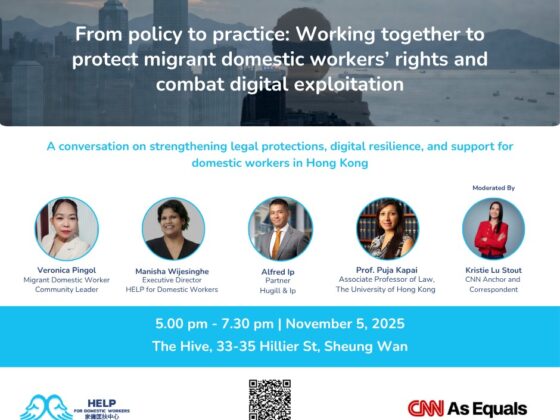A recent judgment from the Hong Kong Court of First Instance has ignited significant discussion, not just within legal circles but across society, regarding the evolving definitions of family and parenthood. This ruling, centered on the legal recognition of a child born to a same-sex couple through assisted reproductive technology, stands as a compelling testament to the dynamic interplay between law, societal norms, and individual rights. It prompts us to reflect on how legal frameworks adapt to modern family structures and the profound implications for equality and human dignity.
At the heart of this case is K, a young child born to a female same-sex couple, R and B. Their journey to parenthood involved reciprocal in-vitro fertilisation (RIVF) in South Africa, a process where R, the genetic mother, provided the egg, and B, the gestational mother, carried the pregnancy to term. Despite their marriage in South Africa and their shared commitment to raising K and the declaration by Her Madam Justice Au Yeung that R is a parent in common law, The Hong Kong Government only recognized B as K’s legal parent on the birth certificate. R, the biological and social parent, found herself without legal recognition, a situation that led to significant practical and emotional challenges for the family. This legal vacuum prompted K, through R as his next friend, to seek judicial review, challenging the existing legal framework’s failure to acknowledge diverse family structures.
This challenge comes in the wake of the landmark Sham Tsz Kit case, which established a constitutional requirement for appropriate recognition of same-sex partnerships in Hong Kong, acknowledging their various potential consequences, including breakdown. As Mr. Justice Coleman noted in paragraph 15 of the judgment, while the government emphasized that the South African marriage was not recognized in Hong Kong, their position is at least analogous and comparable to the position of opposite-sex married couples in Hong Kong.
The legal battle: Arguments and judicial scrutiny
The legal challenge mounted by K centered on the alleged unconstitutionality of key provisions within the Parent and Child Ordinance (PCO) and the Births and Deaths Registration Ordinance (BDRO). The core contention was that these laws, together with the decision by the HK Government not to provide for the registration K in the birth certificate of her own gentically related child, violated fundamental rights enshrined in Hong Kong’s Bill of Rights (BOR, Cap. 383) and Basic Law (BL). Specifically, the arguments invoked the right to privacy and family life (BOR 14 & 19), the rights of children (BOR 20), and the right to equality (BOR 22, BL 25).
Mr. Justice Coleman’s decision and reasoning
Mr. Justice Coleman’s judgment meticulously dissected the parties’ arguments, ultimately siding with K that there is encroachment on or infringement of the BORs engaged and that the constitutional challenge is made good. Below are a few key findings/reasons from the learned Justice :
- Rejection of ‘Parent at Common Law’ Declaration: While acknowledging the previous declaration by Au Yeung J that R was a ‘parent at common law’, Mr. Justice Coleman found this declaration to be of no practical legal effect. He reasoned that if the PCO explicitly taken out common law rights, then there can be no parent at common law.
- Unconstitutionality of PCO and BDRO: The court found that the existing provisions of the PCO and BDRO were unconstitutional as they discriminated against children born to same-sex parents and interfered with their privacy and family rights. The judge emphasized that K’s identity and well-being were negatively impacted by the lack of legal recognition for R.
- Rejection of Government’s Justifications: The judge systematically dismissed the government’s arguments. He found no legitimate aim for the discriminatory treatment and concluded that the measures were disproportionate. He particularly rejected the idea that guardianship orders were a sufficient alternative, stating that they do not confer the same status or rights as legal parenthood. He also dismissed the government’s reliance on ‘social consensus,’ asserting that the will of the majority cannot dictate the court’s function in upholding constitutional rights. He emphasized that ‘a parent is a parent,’ regardless of the circumstances of their child’s birth or the parents’ sexual orientation. (See Judgment, e.g., paras. 121-168.)
A step forward for equality and modern family recognition
This judgment marks a significant stride towards a more inclusive and equitable legal landscape in Hong Kong. It underscores several critical points that resonate far beyond the immediate parties involved:
- Affirmation of Diverse Family Structures: The ruling acknowledges the reality of modern families, moving beyond traditional definitions to embrace the complexities of assisted reproduction and same-sex partnerships. It sends a powerful message that love, commitment, and biological connection, rather than outdated legal constructs, should define parenthood.
- Child-Centric Approach: At its core, the decision prioritizes the best interests of the child. The court recognized the profound impact of legal non-recognition on a child’s identity, well-being, and practical interactions with society. By ensuring that both parents are legally acknowledged, the judgment provides children with stability, security, and a complete sense of their family unit.
- The Importance of Legal Recognition: The case highlights the critical role of official documents, like birth certificates, in a person’s identity and legal standing. It demonstrates that the absence of legal recognition can lead to tangible disadvantages and emotional distress, reinforcing the need for legal frameworks to accurately reflect social realities.
- Judicial Activism in Protecting Rights: this case stands is a testament to the judiciary’s role in safeguarding fundamental rights. This approach ensures that laws evolve with societal values and constitutional guarantees, even in the absence of direct legislative reform.
This development in Hong Kong aligns with a global trend towards greater recognition of LGBTQ+ rights and diverse family forms. Jurisdictions worldwide are grappling with similar questions, and many have already moved to grant legal recognition to same-sex parents.
This Judgement also prompts further consideration of how other areas of law might need to adapt to fully reflect and protect the rights of all families. The conversation now shifts to how these principles will be implemented and how society will continue to embrace and support all its members, regardless of their family structure. This ruling is not just a legal precedent; it is a societal milestone, urging us to reflect on what truly constitutes a family in the 21st century and how our laws can best serve the interests of every child.
The ongoing struggle for equality: A reality check
Despite this landmark judicial victory on human rights, the path to full equality for same-sex couples in Hong Kong remains fraught with challenges. This was starkly illustrated by the recent news that legislation to create a separate legal framework for same-sex relationships failed to pass, with many voter rejecting the bill on the basis that it does not accord with traditional value. This development underscores the persistent difficulty of achieving legislative reform in this area and highlights the crucial role the judiciary plays in protecting fundamental rights when the political process stalls.
This is where Mr. Justice Coleman’s postscript in his judgment becomes particularly poignant. He wisely noted that when an ‘inexorable event’ occurs — such as the reality of same-sex couples forming families and having children — society and its legal frameworks must adapt. His words serve as a powerful reminder that while legislative change may be slow, the courts can and must step in to provide for and accommodate the lived realities of all members of society, ensuring that the law does not lag too far behind the inevitable march of social progress. This judgment, therefore, is not just a victory for one family, but a beacon of hope and a call to action for a more inclusive and just future.
Author: Raphael Wong
The article was originally published on the Legal 500 website




